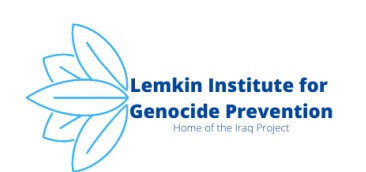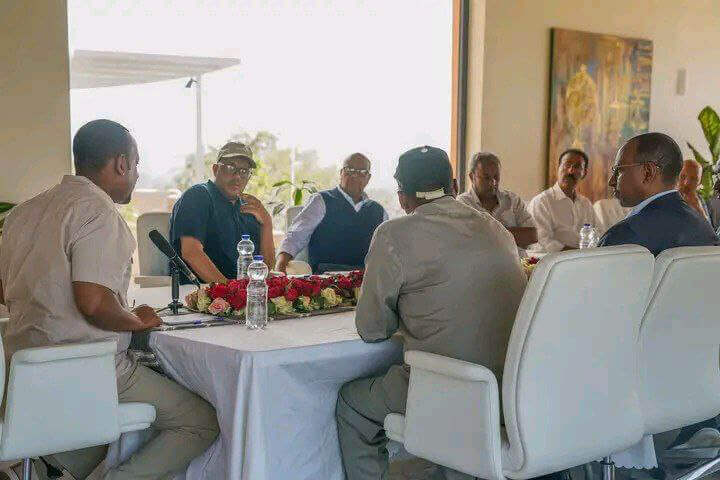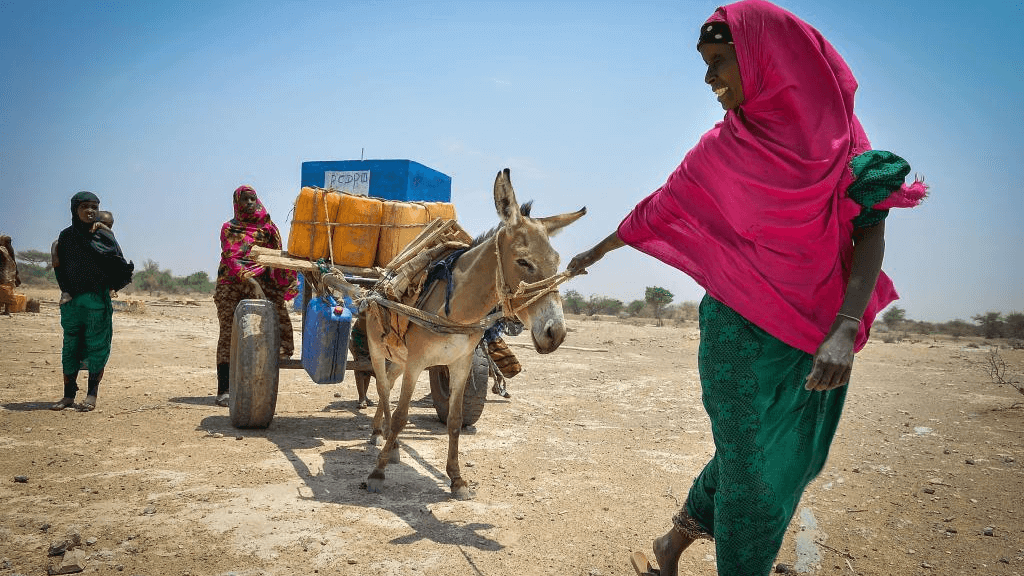 February 3, 2023
February 3, 2023
The Lemkin Institute for Genocide Prevention is alarmed by the ongoing massacres of ethnic Amhara men, women, and children in the Oromia region of Ethiopia, as well as in the neighborhing regions of Afar, Amhara, Benishangul-Gumuz, which are being overlooked by the international community. The massacres of Amhara in Oromia, which have been going on since before the outbreak of war between Ethiopian National Defense Forces (ENDF) and the Tigray People’s Liberation Front (TPLF) in 2020, are often reported simply as “killings,” without noting the discriminatory nature of the violence. This leaves thousands of Amhara in pemanent peril and emboldens their tormentors.

The massacres are ongoing even as the country begins implementation of the 2 November 2022 Agreement for Lasting Peace through a Permanent Cessation of Hostilities signed between the Ethiopian government and the TPLF, an agreement that aims to bring an end to a horrific two year war in the Tigray region of the country. The ongoing violence in the Oromia region threatens to ignite a new civil war in the country.

The Amhara are one of the most dispersed ethnic groups in Ethiopia, living or having lived in most regions of the country for centuries. They are also often collectively blamed by other groups for identity-based grievances that resulted from the state and empire-building activities of successive Ethiopian monarchs who were associated with the Amhara. Often viewed as “elites” and, according to the ethnic federalism of Ethiopia’s constitution, as “settlers” in regions outside of Amhara, the Amhara people are in a social position that makes them very vulnerable to genocide as unwanted, privileged “outsiders.” As a result of their scattered residence, they are also all the more vulnerable to state and non-state affiliated armed groups in each region of the Ethiopian federation, particularly in Oromia.
Although in the beginning of the conflict, the Oromia Special Forces (OSF) under the command of the Oromia regional government merely stood aside while the Oromo Liberation Army’s (OLA) military actions against Amhara people. Recently the two factions have created a formal strategic alliance in order, it appears, to forcibly displace all Amhara from the Oromia region through massacres, the burning of their homes, the commission of sexualized violence, and other well-known forms of terrorization associated with genocide. According to organizations closely monitoring the killings and other human rights abuses against the Amhara, at least 1,566 Amhara people were killed and 239 were injured in the Oromia region in 2022.
Between June and August 2022, large-scale killing campaigns by the OLA occurred in the region of Oromia. In the Kelem and West Wollega zones, members of the OLA have killed hundreds of Amhara people, looted their homes and business, and committed sexual and gender-based violence against Amhara women.

More recent data disclose that between September 23rd and December 5th, 2022 more than 300 Amhara civilians have been murdered in the Oromia region while close to one hundred have been seriously wounded. Several dozen are missing and presumed dead. These atrocity crimes have been conducted mainly by the OLA, but the local Qeerro (ultranationalist Oromo Youth) and OSF have joined and perpetrated gross human rights violations and war crimes. Additionally, officials in the Oromia regional government have been implicated in crimes on multiple occasions.
Evidence shows that all Oromia armed forces are conducting what appears to be a systematic policy of erasing the Amhara presence in the East Wollega and Horo Guduru Wollega Zones by killing ethnic Amhara, looting their property, spreading terror among the local population, and forcing their displacement to other regions of Ethiopia.
Thus, despite the signature of the peace agreement on 2 November 2022, ethnic violence against Amhara demonstrates no sign of abating, which in itself represents a critical predictor of future atrocity crimes. The federal government has proven itself to be ineffective in stemming this violence and at times appears to support it.
Ongoing targeted violence in the Oromia region has led to the displacement of hundreds of thousands of civilians from their homes to the neighboring Amhara region. In many instances, joint OSF-OLA militants have even opened fire on towns with significant Amhara IDP populations such as Haro in East Wollega. Injured victims have been unable to access telecommunications services, electricity, and medical services, due to joint OSF-OLA forces having blocked roads and movement of Amhara IDPs. This blockade has hindered the ability of residents to access goods and services and to escape to safety.
The Lemkin Institute for Genocide Prevention reiterates its call to Ethiopian authorities to let independent human rights experts conduct thorough investigations of crimes committed in the Oromia region against Amhara people.
The Lemkin Institute urges the international community, along with regional and local actors, to use all tools at its disposal to prevent further atrocities against the Amhara as well as against all other threatened communities in Ethiopia. In parallel, efforts must be made to restore basic services and to facilitate humanitarian access to Amhara communities targeted in the Oromia region.
Moreover, the Lemkin Institute urges regional bodies and the international community to take action to restore stability and security in the wider region, thereby preventing further violations of human rights law and breaches of international humanitarian law in the Horn of Africa. The region alternately called “Welkait-Tegede” (to the Amhara) and “Western Tigray” (to Tigrayans) requires immediate international attention, as it is a focal point for tensions and a space in which mutual atrocities have been committed by identity-based militia groups. A special truth and reconciliation commission should be considered for this region in order to restore some sense of historical and present-day justice, and hence some real human security, to the people and the land.
Enduring peace in Ethiopia will require accountability for all crimes committed against groups, including against the Amhara people. This could be realized in the form of independent investigations into the atrocity crimes committed against Amhara civilians and promotion of an inclusive national dialogue process. Alongside national dialogue, the international community must support a robust disarmament, demobilization and reintegration (DDR) process for members of armed militias across the country as well as a generous economic investment package that supports peacebuilding in all communities affected by ongoing conflict. It is critical that the widespread attacks against the Amhara are brought under control and not allowed to spread further, lest civil war continue to destroy the lives and livelihoods of ordinary Ethiopian citizens, who all deserve peace.

 February 3, 2023
February 3, 2023














